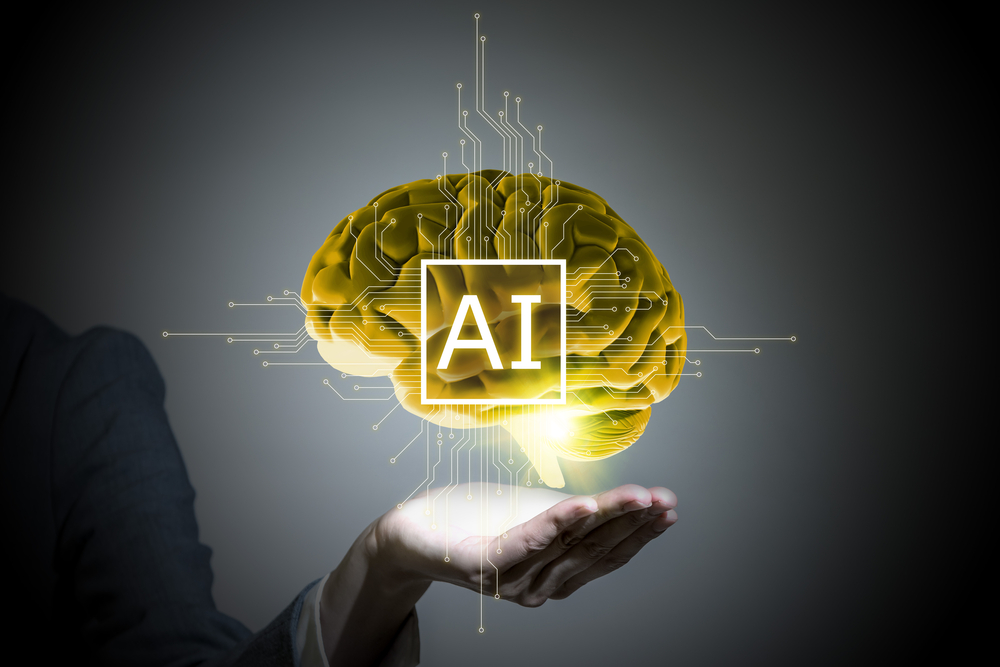Should AI stay or should it go?
Featured Products Promotional FeaturesPosted by: Dental Design 30th August 2023

Back in the 1950s, Alan Turing – the father of modern computing, and according to some, the father of artificial intelligence (AI) – was grappling with concepts about thinking machines and intelligence. He devised the infamous ‘Turing test’, designed to evaluate a machine’s capability to exhibit intelligence that equals, or even rivals, that of a human.
Now, deep into the 21st century, such concepts are our reality. With 92% of the UK population owning a smartphone,[i] the majority of individuals experience AI on a day-to-day basis, without really lending it much thought. Not only has AI permeated popular culture, but it has now gained traction in healthcare.
In recent years, AI has made considerable strides within the field of dentistry, providing dental practitioners with a potent tool for diagnosing, treating and preventing dental complications. It’s important to note that this field still has a long way to go and we are only just beginning to realise the potential of this technology. As such, dental professionals should maintain some caution when introducing solutions into their everyday lives, recognising the limitations of the today’s equipment. However, there are already several ways that dentistry is being supported with AI.
Accuracy and efficiency
Perhaps one of the most significant advantages of incorporating AI into the dental practice is the enhanced accuracy and efficiency it provides. In dentistry, successful treatment and patient safety depend upon accuracy and reliability, something which AI can contribute to. Indeed, the literature supports the argument that AI displays impressive accuracy with regards to diagnostic and prognostic evaluation.[ii] Other research concludes that AI systems are able to ‘mimic the precision and accuracy of trained specialists’.[iii]
With this level of accuracy and with the ability to analyse vast amounts of data quickly, AI algorithms allow dentists to make better-informed decisions regarding patient care. This can facilitate improved patient outcomes, faster treatment times and also reduced costs. Right now, the focus is on AI-supported treatment – the technology is not providing the answer, it is supporting and/or contributing to the clinician’s recommendations.
Optimised treatment planning s
Treatment planning is another vital aspect of dentistry. It goes without saying that a thorough treatment plan can prevent many common treatment failures,[iv] and this is another area where AI technology can enhance your practise. AI software can utilise data-driven insights to optimise treatment planning for patients, creating plans that cater to their individual needs and requirements, thus facilitating a more successful and long-lasting treatment outcome.
AI-driven concepts can also aid dentists in ascertaining whether a treatment is clinically necessary. This also provides added confidence for patients who may otherwise question the dentist’s intentions. For example, AI-driven technology has been used in studies to determine whether orthodontic treatment was necessary, with the results showing that the model was effective and demonstrated promising results with high accuracy.[v]
Enhanced patient experience
 Now more than ever, the patient experience is at the forefront of dentistry. Trends and patient expectations change constantly, and the dental team are tasked with keeping one step ahead in order to manage expectations and to satisfy them.
Now more than ever, the patient experience is at the forefront of dentistry. Trends and patient expectations change constantly, and the dental team are tasked with keeping one step ahead in order to manage expectations and to satisfy them.
AI concepts are helping to improve the experience for patients, both in the practice and out. Non-clinical AI tools like management software systems and automated appointment scheduling streamline the process and remove unnecessary manual steps – patients can utilise these tools to book appointments out of hours, for instance. Similarly, a chatbot is a programme that uses AI to aid patients who visit a website, answering queries and providing information that saves the patient and professional team time.
Preventative care
With an aging population and individuals retaining their natural dentition for longer, alongside the burdens to oral health like poor diet and lifestyle habits, the dental team are faced with unique challenges. Prevention is now the focus, with patient education having become an important part of keeping oral complications at bay. When patients are armed with relevant information, they can make better decisions regarding their oral health – AI can aid massively in this endeavour. Apps and devices powered by AI can support patients between appointments, such as those that provide guidance for oral hygiene habits or help to monitor the oral cavity during and post-procedure.
A final word
Turing, in his essay ‘Computing Machinery and Intelligence’, proposed the question ‘Can machines think?’,[vi]but the question today is closer to, ‘Should machines think?’. Unsurprisingly, there has been much debate on the subject of AI in dentistry. The technology is not without its challenges and potential concerns. Outstanding advancements have made AI incredibly sophisticated, but of course, as with any emerging technology, there are questions regarding ethics, data and privacy being raised. AI still requires much development and finessing, so it is possible that in the coming years these issues will be solved.
That said, AI is an enhancement tool, not a rival. Human interaction is vital in healthcare sectors, and this is something AI will be able to fully replace for quite some time, if ever.
Stephen Claffey Managing Director of Dental Pathway™ and the Independent Dental Advisory Board™
[i] Don’t disappoint me, (n.d.). 30+ Staggering UK Smartphone Usage Statistics [2022]. [online] Available at: https://dontdisappoint.me.uk/resources/electronics/smartphone-usage-statistics-uk/#:~:text=A%20recent%20analysis%20of%20smartphone%20ownership%20statistics%20in [Accessed 12 Jun. 2023].
[ii] Karobari, M.I., Adil, A.H., Basheer, S.N., Murugesan, S., Savadamoorthi, K.S., Mustafa, M., Abdulwahed, A. and Almokhatieb, A.A. (2023). Evaluation of the Diagnostic and Prognostic Accuracy of Artificial Intelligence in Endodontic Dentistry: A Comprehensive Review of Literature. Computational and mathematical methods in medicine, [online] 2023, p.7049360. Available at: https://europepmc.org/article/med/36761829 [Accessed 12 Jun. 2023].
[iii] Khanagar, S.B. (2020). Developments, application, and performance of artificial intelligence in dentistry – A systematic review. Journal of Dental Sciences. [online] Available at: https://reader.elsevier.com/reader/sd/pii/S1991790220301434?token=64E85786F5D755BD80EEFEC68D5D8D87CD3D09F890050974B774BD332CD88730DC500B4F61AD3601096B82C56D84BD19 [Accessed 12 Jun. 2023].
[iv] Chee, W. and Jivraj, S. (2007). Failures in implant dentistry. British Dental Journal, [online] 202(3), pp.123–129. Available at: https://www.nature.com/articles/bdj.2007.74 [Accessed 12 Jun. 2023].
[v] Thanathornwong, B. (2018). Bayesian-Based Decision Support System for Assessing the Needs for Orthodontic Treatment. Healthcare Informatics Research, [online] 24(1), pp.22–28. Available at: https://www.ncbi.nlm.nih.gov/pmc/articles/PMC5820082/ [Accessed 12 Jun. 2023].
[vi] Turing, A.M. (1950). Computing Machinery and Intelligence. Mind, LIX(236), pp.433–460. doi:https://doi.org/10.1093/mind/lix.236.433.








